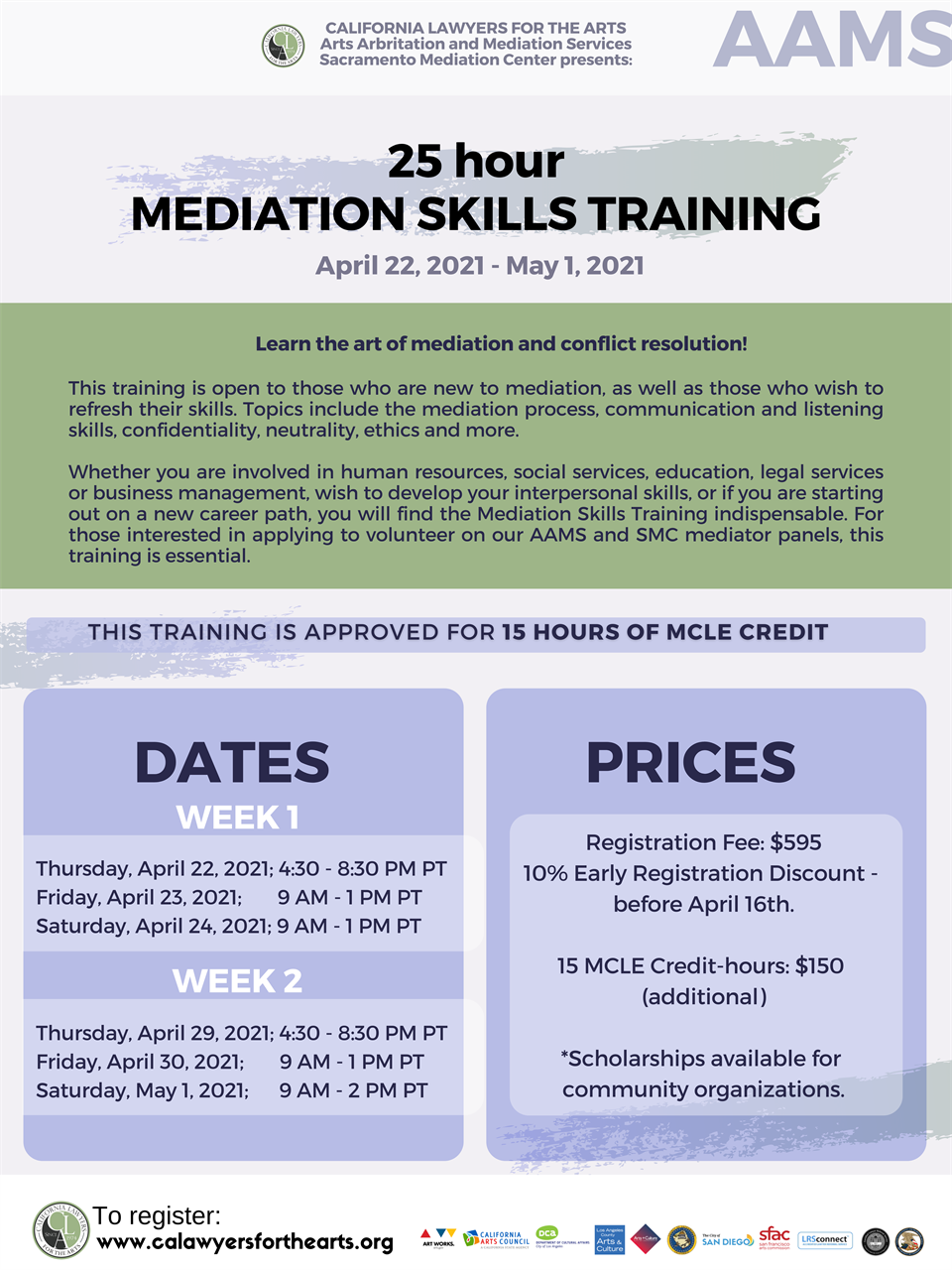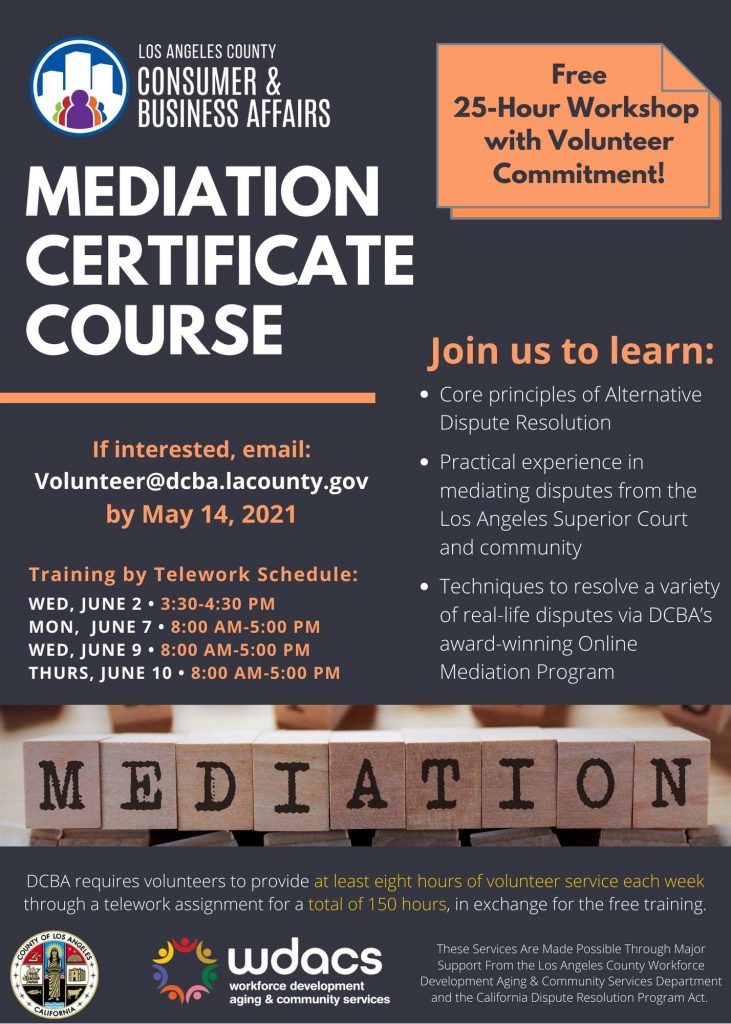To become a mediator in California, complete the required training and education programs, submit an application to the state governing body, and obtain the necessary certifications and licenses. Becoming a mediator in California is a promising career path for individuals with exceptional problem-solving and communication skills.
As the demand for alternative dispute resolution continues to grow, mediators play a crucial role in helping parties resolve conflicts outside of the courtroom. In this comprehensive guide, we will explore the steps and requirements involved in becoming a mediator in California.
From academic qualifications to practical training and certification, we will provide all the necessary information to jumpstart your journey towards a successful career in mediation. So, let’s delve into the details and discover the path to becoming a mediator in the Golden State.
Understanding Mediation
Becoming a mediator in California entails understanding the process of mediation, which involves impartially facilitating disputes and reaching mutually agreeable solutions.
What is Mediation?
Mediation is a voluntary process in which a neutral third party, called a mediator, helps disputing parties find common ground and reach a mutually beneficial agreement. Unlike litigation, mediation allows individuals to maintain control over the outcome and encourages open communication and cooperation. It is commonly used in various fields, including family law, business disputes, and community conflicts.Benefits of Mediation
Mediation offers a multitude of benefits over traditional court proceedings. Here are some key advantages of opting for mediation: 1. Cost-effective and Time-efficient: Mediation typically costs less than going to court as it eliminates the need for attorneys and saves precious time spent navigating the legal system. 2. No Win-Lose Scenario: Unlike litigation, mediation aims to find win-win solutions that satisfy the needs and interests of all parties involved. It promotes collaboration rather than confrontation. 3. Confidentiality: Mediation occurs in a confidential setting, ensuring that personal information and sensitive issues are kept private. This creates a safe space for open discussions. 4. Flexible and Tailored: Mediation allows for customized solutions that address the specific needs and concerns of the individuals involved. It offers the opportunity to explore creative options beyond the scope of traditional legal remedies. 5. Preservation of Relationships: Mediation focuses on resolving conflicts amicably and can help maintain or restore relationships that may have been damaged by the dispute. It encourages effective communication and understanding between parties. 6. High Success Rate: Mediation often leads to successful resolutions as it allows participants to have direct input and control over the outcome. With a skilled mediator guiding the process, parties are more likely to find mutually agreeable solutions. In conclusion, mediation is a valuable alternative to litigation, offering numerous benefits for resolving disputes effectively and efficiently. Whether you’re dealing with a divorce, a business conflict, or a community disagreement, mediation can provide a productive and favorable way to find resolution. Understanding the principles of mediation and its advantages can empower you to make informed decisions throughout the process.
Credit: calawyersforthearts.org
Steps to Becoming a Mediator in California
If you have a passion for conflict resolution and want to help people find peaceful resolutions, becoming a mediator in California can be a rewarding career choice. Mediators have the ability to facilitate communication and negotiation between parties involved in a dispute, helping them reach mutually agreeable solutions without going to court. If you are considering a career in mediation, here are the steps you need to follow to become a mediator in California.
Step 1: Understand the Requirements
Before embarking on the journey to become a mediator in California, it is important to understand the requirements set by the state. In California, mediators are certified by the California Dispute Resolution Programs Act (DRPA). To be eligible for certification, you must meet certain criteria. These criteria include:
- Being at least 18 years old
- Having a high school diploma or equivalent
- Completing a minimum of 40 hours of Basic Mediation Training
- Having the ability to demonstrate familiarity with ethical standards and mediation principles
By understanding these requirements, you can ensure that you are on the right path to becoming a certified mediator in California.
Step 2: Complete the Required Training
After familiarizing yourself with the requirements, the next step is to complete the necessary training. California requires a minimum of 40 hours of Basic Mediation Training, which includes classroom instruction, role-playing exercises, and case simulations. This training provides aspiring mediators with the foundational knowledge and skills needed to effectively mediate disputes.
It is important to choose a training program that is approved by the DRPA. These approved programs have met certain standards of quality and will ensure that you receive proper training. Make sure to do your research and choose a program that suits your needs and budget.
Step 3: Gain Experience
Once you have completed the required training, the next step is to gain practical experience as a mediator. While California does not have specific experience requirements, gaining real-world experience can be invaluable in developing your mediation skills and building your reputation as a mediator.
Consider volunteering at community mediation centers, nonprofit organizations, or other mediation programs to gain experience. This will allow you to apply the knowledge and skills learned during your training in real-life mediation scenarios. Additionally, seeking mentorship from experienced mediators can provide valuable guidance and support as you navigate your career in mediation.
Step 4: Apply for Certification
After gaining the necessary training and experience, the final step is to apply for certification as a mediator in California. To do this, you will need to submit an application to the DRPA along with the required documentation, including proof of completing the training and any additional certifications or qualifications.
Once your application is reviewed and approved, you will receive your certification as a mediator in California. This certification serves as evidence of your qualifications and can open doors to various opportunities in the field of mediation.
Becoming a mediator in California requires dedication, training, and experience. By following these steps and meeting the requirements set by the DRPA, you can embark on a fulfilling career path in mediation and help individuals and communities find peaceful resolutions to their disputes.
Developing Mediation Skills
Developing mediation skills is essential to becoming a mediator in California. Gain expertise in conflict resolution, communication, and negotiation techniques to effectively facilitate peaceful resolutions in various legal and personal matters.
Active Listening
Active listening plays a crucial role in becoming a skilled mediator. It involves fully focusing on and understanding the parties’ concerns, feelings, and perspectives. By giving your complete attention, you show empathy and establish a sense of trust. Maintain eye contact, provide verbal and non-verbal cues to indicate understanding, and avoid interrupting the speakers. This allows you to gather information accurately and ensure that the parties feel heard and validated.
Conflict Resolution
Conflict resolution is an essential skill for mediators. It involves helping parties find common ground and facilitating the resolution of their disputes in a non-adversarial manner. Mediators must stay neutral and guide the conversation towards finding mutually acceptable solutions. This requires identifying underlying interests, reframing issues, and fostering constructive dialogue. By creating a safe and respectful environment, mediators enable parties to communicate effectively and reach agreements that consider everyone’s needs.
Emotional Intelligence
Developing emotional intelligence is fundamental for successful mediation. Understanding and managing emotions, both your own and those of the parties involved, is crucial in maintaining a calm and balanced atmosphere. This skill allows mediators to navigate sensitive topics and diffuse tension, promoting a cooperative atmosphere. By demonstrating empathy, recognizing emotions, and adapting their approach accordingly, mediators can build rapport and encourage open communication, enhancing the chances of reaching a satisfactory resolution.
Effective Communication
Effective communication is the cornerstone of mediation. Mediators must clearly articulate instructions, facilitate discussions, and summarize key points. Using simple and concise language is essential to ensure understanding by all parties involved. Additionally, non-verbal communication, such as body language and tone of voice, should align with the desired atmosphere of open dialogue and cooperation. By actively listening, asking relevant questions, and using appropriate communication techniques, mediators can foster trust, encourage understanding, and facilitate the resolution process.

Credit: dcba.lacounty.gov
Tips for Mastering Mediation Skills
Mastering mediation skills is vital for anyone aspiring to become a mediator in California. These skills allow mediators to effectively facilitate conversations and resolve disputes between parties. Whether you are just starting your journey or looking to enhance your existing skills, here are some essential tips to help you become a proficient mediator.
Continuous Learning and Professional Development
Continuously expanding your knowledge and sharpening your mediation skills is the key to professional growth in this field. Stay updated with the latest mediation techniques, industry trends, and legal developments in California. Some effective ways to achieve this include:
- Attending mediation workshops, seminars, and conferences
- Participating in professional mediation organizations and networking events
- Reading books, articles, and research papers related to mediation
- Connecting with experienced mediators for mentorship and guidance
By engaging in continuous learning, you can stay ahead in the field and ensure your skills are up to date with the ever-evolving landscape of mediation.
Building Rapport with Parties
Establishing a positive and trusting relationship with the parties involved is crucial for effective mediation. Building rapport helps create an atmosphere of mutual respect and understanding. Here are some strategies to develop rapport:
- Active listening: Pay full attention to what each party has to say without interrupting or judging.
- Empathy: Understand the emotions and concerns of each party by putting yourself in their shoes.
- Open communication: Encourage open dialogue, allowing parties to express themselves freely.
- Respect and impartiality: Treat all parties equally and show respect for their perspectives.
By building rapport, you can foster an environment that promotes effective communication and collaboration, increasing the chances of a successful mediation process.
Maintaining Neutrality
As a mediator, it is crucial to maintain impartiality throughout the mediation process. Neutrality ensures that all parties feel heard and that the process remains fair and unbiased. Here are some tips for maintaining neutrality:
- Avoid taking sides or favoring any particular party.
- Focus on the issues and interests rather than personal opinions.
- Remain nonjudgmental and refrain from making assumptions.
- Control your emotions and reactions to avoid any unintentional bias.
By staying neutral, you can create a safe space for open communication and facilitate a balanced resolution between the parties.
Managing Difficult Situations
Dealing with challenging situations is an inevitable part of mediation. As a mediator, it is essential to handle conflicts and obstacles effectively. Here are some strategies for managing difficult situations:
- Stay calm and composed to maintain control over the process.
- Use active listening and effective communication techniques to diffuse tension.
- Identify and address underlying interests and concerns.
- Encourage collaboration and brainstorming for creative solutions.
- Be flexible and adaptable, adjusting your approach based on the unique circumstances of each case.
By effectively managing difficult situations, you can guide parties towards a constructive resolution, even in the face of complex conflicts.

Credit: www.linkedin.com
Conclusion
Becoming a mediator in California requires a combination of education, training, and experience. By following the necessary steps, such as completing a mediation program, obtaining practical experience, and staying updated with the latest professional standards, aspiring mediators can pave their way towards a successful career in this field.
Remember that mediation presents an invaluable opportunity to help others find amicable solutions and foster positive change within their communities. Start your journey today and make a difference as a mediator in California.
